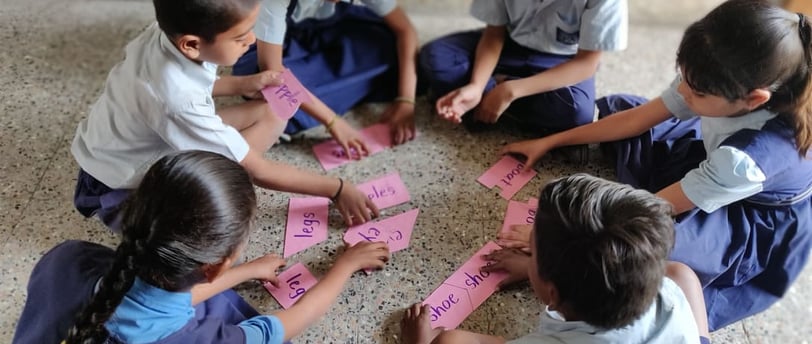Transforming Education in India: Nurturing Critical Thinkers and Innovators
Alisha Butala
6/2/20242 min read


Having had the privilege of closely working with state governments in the education sector, I've witnessed the profound impact of education. I firmly believe that education serves as a powerful instrument for societal change, addressing issues such as gender equality, climate change, and peacebuilding.
In today's rapidly evolving world, we need to focus on fostering critical thinking and inquiry-based learning among the youth. These skills are essential for them to thrive in an ever-changing environment. India boasts the world's largest young population, known for its creativity and ingenuity. To harness this potential, we must make a concerted effort to integrate critical thinking and inquiry-based approaches into our education system. By nurturing a culture of curiosity, questioning, and exploration, we empower our youth to become adept problem solvers and innovative thinkers. With their innate capacity for innovation and resilience, Indians are renowned as "Jugadu People" – individuals who find ingenious solutions to any problem. It's time to harness this spirit of innovation and infuse it into our education system.
While our education policy emphasizes the importance of critical thinking and inquiry-based learning, the reality often falls short. A significant obstacle lies in the lack of adequate training for teachers. Investing in comprehensive teacher training programs is essential to bridge this gap and equip educators with the tools to effectively impart these skills in the classroom.
Teachers are the cornerstone of our education system, shaping students' educational journeys and moulding their intellectual development. It's imperative to empower them with the necessary skills to foster a culture of curiosity, debate, and questioning. By investing in teacher training, we can transform educators into facilitators of learning, guiding students on a journey of exploration and discovery.
Reflecting on my educational journey, I vividly recall the profound impact of a dedicated teacher during my 9th-grade history class. Through engaging storytelling sessions, she facilitated discussions that transcended the confines of textbooks, encouraging us to explore diverse perspectives and challenge established narratives. Her emphasis on curiosity, critical inquiry, and societal responsibility left an indelible mark on my thinking and aspirations, guiding me to navigate life with purpose and conviction. Whatever I am today, I feel she has played a significant role in shaping my thoughts, dreams, and passions. The lessons she taught us have stayed with me and continue to guide me.
This exemplifies the transformative power of a committed educator. While my experiences working with state governments have shown me the dedication of our teachers, it is incumbent upon us to invest in their professional development, nurturing their leadership skills and empowering them to inspire the next generation. By making them leaders, training them, and believing in them, we are investing in our today's and tomorrow's generation. We are investing in our future.
In conclusion, our collective commitment to promoting critical thinking and inquiry-based learning is paramount. By investing in teacher training and fostering an environment that celebrates curiosity and independent thought, we can unlock the full potential of India's youth, propelling our nation towards a brighter and more prosperous future. Let us embark on this journey together, empowering India's youth to think critically, dream boldly, and shape a better world.
